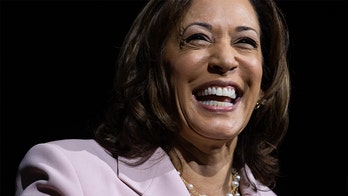Former federal prosecutor Brett Tolman discusses the alarming implications of a broken criminal justice system where prosecutors and judges abuse their power, potentially ensnaring innocent individuals in a relentless pursuit of convictions.

In the wake of the unprecedented guilty verdict against former President Donald Trump, concerns have been raised about the systemic flaws within the criminal justice system. Former federal prosecutor Brett Tolman has shed light on the perils of overcriminalization and the weaponization of the law, emphasizing that the consequences extend far beyond high-profile cases.

The sheer number of laws on the books, estimated to encompass hundreds of thousands of offenses, empowers law enforcement and prosecutors with an arsenal of potential charges that can be leveraged against virtually anyone. This pervasive overcriminalization creates an environment where individuals are vulnerable to selective enforcement based on their political affiliations or other factors.
The absence of an effective check on prosecutorial overreach is compounded by the role of judges. In the New York v. Trump case, former Manhattan Supreme Court Judge Juan Merchan's alleged bias and heavy-handed tactics have raised serious questions about the fairness of the trial. Merchan's actions deviate significantly from the established norms of due process and the presumption of innocence.

Tolman highlights the alarming trend of post-conviction exonerations, indicating that a significant number of convictions may be wrongful. He also points to the potential for disproportionate sentencing in jury trials due to prosecutorial discretion and the vindictiveness of judges.
The erosion of due process and the integrity of the justice system has far-reaching implications for all Americans. The possibility that political opponents can be targeted and criminalized sends a chilling message, creating a climate of fear and stifled dissent.

Tolman cites the concerns raised by CNN's senior legal analyst Elie Honig, who described the Trump case as an "ill-conceived, unjustified mess." Honig alleges prosecutorial distortions and a "Frankenstein case" that may ultimately backfire on its creators.
The problem of overcriminalization is exacerbated by the heightened political polarization in society. Instead of being confined to the halls of Congress, politics is now infiltrating the halls of justice, threatening to transform the legal system into an instrument of political warfare.

Tolman emphasizes that the United States has the dubious distinction of incarcerating more people per capita than any other nation. This excessive reliance on incarceration highlights the need to rein in the weaponization of the law and demand accountability from those who abuse the criminal justice system.
Regardless of one's political leanings or feelings towards Donald Trump, the trajectory of the criminal justice system warrants serious reflection. Tolman urges Americans to set aside political biases and confront the alarming reality that innocent individuals are at risk of being unjustly ensnared in the endless web of laws and the agendas of those in power.

By promoting transparency, reducing overcriminalization, and demanding ethical behavior from prosecutors and judges, we can safeguard the integrity of the justice system and ensure that it serves its intended purpose of protecting the innocent and upholding the rule of law.










